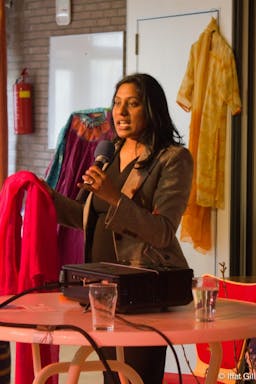Pakistan: Lack of awareness about ICTs use and its impacts on young girls
Jan 21, 2015
Story
I wrote the following story for World Pulse's Voices of Our Future program. I am reposting it below as I find it very relevant to the WWW campaign.
A close friend, 19 year old Nazira, wore her best dress one evening. She came to show me her outfit before she went out to see someone ‘special’. Three hours later, she returned devastated; she could hardly speak. She wore a ‘burqa’ on top of what was left of her dress. Her rosy cheeks looked pale and eyes were sore. She was gang raped by the person she went to see and his friends. A male member from her family had seen her in that condition. I gave her clothes and asked her mother to pick her up. She was not allowed to leave her house following that incident. Nazira got into a ‘relationship’ with the person, a complete stranger, after a few casual chats via mobile phone with him. He had pressurized her into seeing him. It is still ambiguous how the call started.
By December 2010, the cellular subscribers reached at 102,777,387 according to Pakistan Telecommunication Authority (PTA) statistics, putting the cellular teledensity to 61.7 percent. It is a frequent practice to spam mobile phone inboxes with random contact numbers ‘available to chat.’ It has been an epidemic how SMS asking for ‘friendship’ circulate and how young people start interacting. The Pakistani youth seemed to have brought it to the level of instant chat messaging on the internet, not realizing the consequences of making your personal number public. This however, is more intrusive than the latter.
The responsibility lies on the inability of the young people to interact freely with the opposite sex due to the social and cultural norms. This has taken a toll on the Pakistani society. The behaviour of young people has changed significantly over the past decade with the advent of modern tools of communication. It almost seems inevitable that the so called ‘friendship’ will be an intimate one as no other opportunities exist for socializing. But the unwary young women like Nazira learned the harsh way how this practice is putting them in danger of exploitation and violence.
What most people fail to realize is the speed at which the modern communication tools has accelerated change. The young people seem to have a more emancipated approach in building new relationships with people they do not necessarily know. A change has occurred. The more time we take as a society ‘in transition,’ to come to terms with the new developments of the social landscape, the more difficult it will get to minimize the harm done to young lives. The free social interaction with opposite sex is still a taboo in Pakistani society. Girls did elope with someone they loved even before the introduction to mobile telephony and internet. But the method to communicate concerns and share frustrations has gotten so much easier and faster. If steps are not taken to allow interaction within the existing set of social, cultural and religious norms of the Pakistani society, a violent change might be imminent and nothing will be able to stop it. Social norms and local traditions are the decision makers about the fate of women. There is now a sharp contrast between the levels of empowerment modern technology has granted women and the women rights our male dominated society allows them to enjoy. The least that can be done is to facilitate these young women in making informed decisions.
The strong need to adapt to swift changes in the technological and the personal landscape of its young population, calls for the importance to educate the young population about privacy and safety issues attached with the risks of their current behaviour. The situation has been under scrutiny since the decision of PTA to ban all unregistered sim cards and connections. It is illegal to be in possession of a SIM card if it is not registered. This, to some extent has assisted in tracking people who ‘prey’ on unsuspecting women, making it less difficult for them to hide their identity. No one educated Nazira about the pros and cons of interacting with strangers via the new technologies. Therefore, a country wide privacy campaign and outreach program is needed to minimize the threats associated with it. An informed decision always supersedes an uninformed one.
Original links: Pakistan: Dangerous Texting
Modern Communication tools and the case of young women of Pakistan




